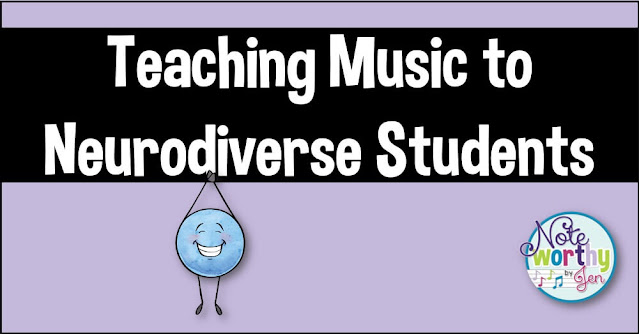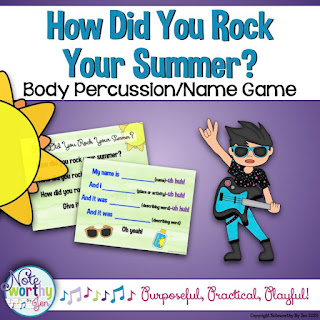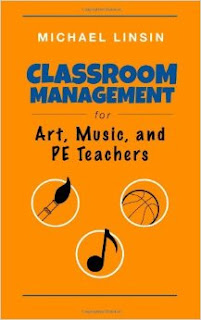Teaching lementary general music is a fabulous opportunity, but if you used to be a band/orchestra/choir director and you get thrown into an elementary position, it can be overwhelming! Here are some thoughts from my 14 years in the elementary music world:
1.
You will be okay. The teaching experiences you already have will be beneficial to you! Think about what you want students to know by the time they get to middle school and base your curriculum on that. Also know that younger kids need to first feel/experience a musical concept to put a name with it--if you just put definitions on a board, students aren't going to keep that information well.
2.
Go to Orff, Kodály, Music Learning Theory, Dalcroze, or Education Through Music workshops as soon as you can find one near you. Not only will you learn valuable teaching ideas and lessons, you will also network which is imperative for you! You need to have someone to ask questions to!
3. Speaking of Orff, Kodály, and Music Learning Theory--
take a levels course for one or more of these during the summer, it will explain so much about elementary music teaching to you. The courses are normally 2 or 3 weeks long, but they are life changing! If you aren't sure which one to take, you can research it.
Here's a comparison between Orff and Kodály level 1.
4.
Find a curriculum to pull activities from so you don't have to kill yourself coming up with lesson plans your first year. You may even want to teach the same lessons to K/1, 2/3, and 4/5 so you are only coming up with 3 different lessons each day you see your students instead of 6! There are tons of curriculum options out there--ask in the elementary music teacher page on Facebook to see what other teachers like and why. You will have to find something that fits your style. Teachers Pay Teachers is also an incredible resource for general music teachers! You can find
classroom decor,
games,
movement activities,
sub tub supplies,
composer of the month/music history, and
other resources that will greatly impact your teaching!
5.
Your first week of school should be about setting clear expectations and learning names. If you are totally new to this position, it will likely take you 2-3 weeks before you have most names down. It will feel overwhelming at first, but it is worth it and means everything to your students. Find name games on Pinterest and through music teaching blogs. Don't worry about teaching content until you know names!
6. You need to know that
kindergarten students are like a bunch of kittens or puppies at the beginning of the school year. Find simple activities such as a few games where they stay in one spot, sing a book to them, or games where they sit. Perhaps create posters for a few classic kid songs (Oh Mr. Sun, Down By the Bay, Old MacDonald, etc.) and sing those with them to help them become comfortable with singing.
7.
Use your strengths! If you are a great vocalist, rely on activities that feature your voice. Those with instrumental backgrounds might be more comfortable working on Orff instruments (I recommend
Mallet Madness or
As American As Apple Pie as a good place to start). Keep in mind KG and 1st grade students won't be able to do much with instruments yet other than learning to hold mallets and keep a beat. If you are a great guitar player, your students will love to do activities while you strum along.
8.
Your "go to" elementary music resources (besides Teachers Pay Teachers) will be West Music, Music Is Elementary, and Music In Motion. Check out their catalogs--it may be worth spending a bit of your own money to have less stress in your life, and you will use it for years to come!
9.
Games are everything in elementary music! Students at this age love to play! Check out
Chicken on the Fencepost,
Doggie, Doggie,
Shanghai Chicken,
Pass the Beat, and
Bow Wow Wow to get started!
There's so much to learn about teaching elementary music, but hopefully those ideas will give you something to think about. I'm sensing that I might need to write on this topic a few more times in the future!
Catch you next time I have something
noteworthy!
Please
note: Noteworthy By Jen is an Amazon affiliate. Links may be
monetized to help support the upkeep of this blog. This affiliation
does not influence my honest opinion on book reviews or resource
recommendations.






